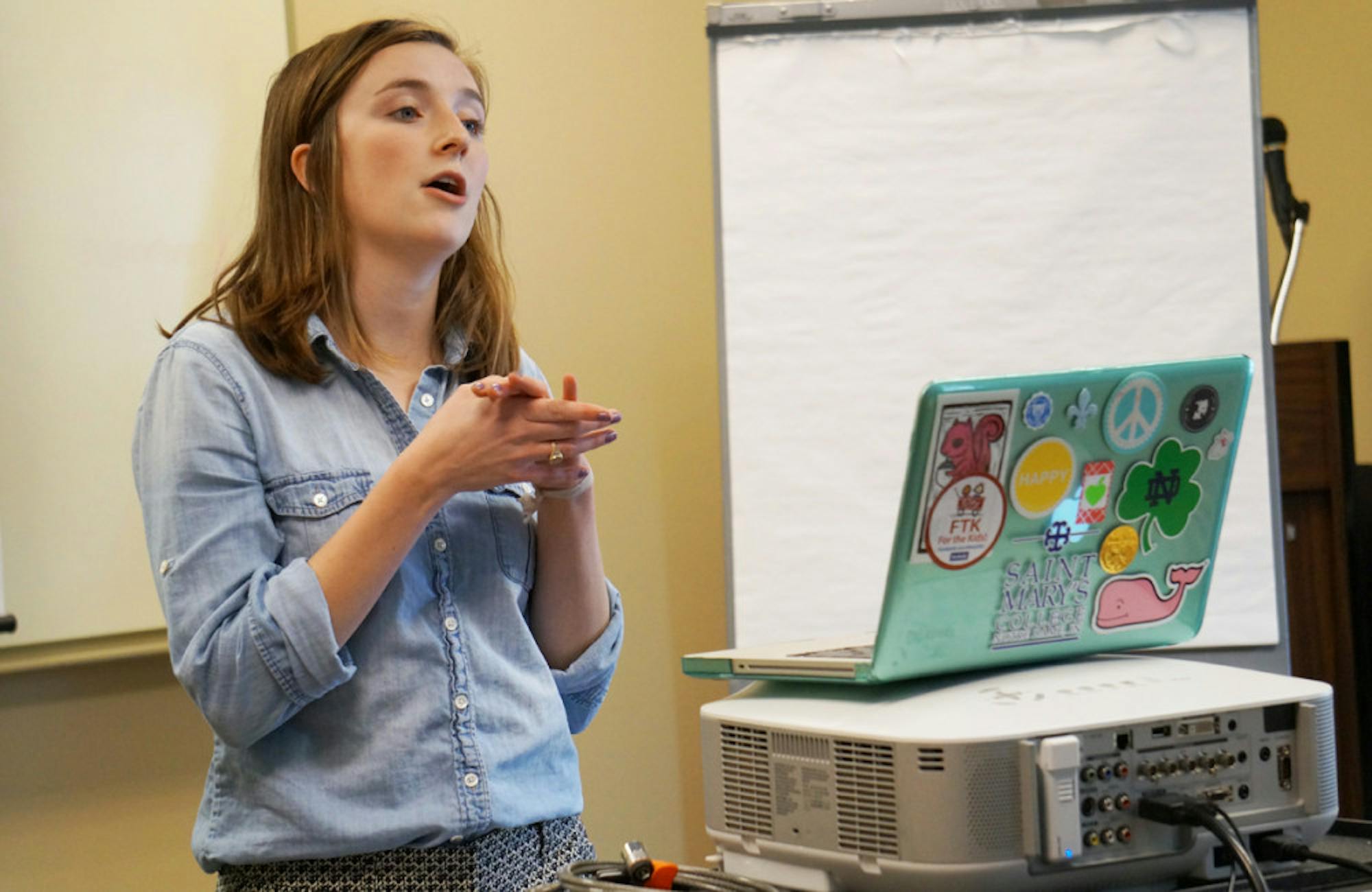The latest event in Saint Mary's "Justice Fridays" series featured junior nursing student Annie McGarrigle, who offered her perspective on healthcare in United States prisons.
“I wanted to talk about this topic because I am a big believer in human dignity in the hospital setting as well as outside the hospital," she said. "The ideas of healthcare regarding inmates really interest me, but more importantly, they really concern me."
On an international scale, McGarrigle said prisons in the United States host more inmates than any other nation.
“The prison population in the United States is the greatest in the world with about 750 people for 100,000," she said. "Whereas in places like India, it's 30 people for 100,000 and China 119, and then in Russia it's 628.
“In total there are more than 1.5 million people incarcerated each year, and 650,000 inmates are released each year as well."
During the discussion, McGarrigle said the nation's infrastructure is not meant to contain this many inmates, and therefore, they are not getting the correct amount and type of care.
“In the United States, the Department of Correction estimates that it's holding 50 percent more people than it’s designed to, and that’s really dangerous because the people that are receiving care in this facility are more likely to have substance abuse issues, mental health problems, are more likely to have STDs and to be at risk for unplanned pregnancies," she said. "So it’s really important that they’re receiving the care they deserve."
Along with the recent budget cuts, jails in the U.S. are acting as more than just correction facilities, McGarrigle said.
“Our jails actually act more like hospitals, asylums, drug treatment facilities and retirement homes,” she said. “A lot of the people who can’t afford to do rehab treatment centers actually tend to commit crimes just to go to jails so they can receive the medication that they wouldn’t get on the outside."
McGarrigle said one in seven inmates also takes prescription drugs prior to incarceration.
“Twenty-one percent of the federal inmates, 24 percent of the state inmates and 37 percent of the local inmates stopped taking those medications when they were incarcerated, which is also really dangerous because medications work by providing a steady amount of chemicals in the blood stream," she said. "And so if you stop that, you’re going to get withdrawals, causing more problems than you started with, and may end up back in the system shortly after."
McGarrigle said it is also possible to help women in prison by using their sentence as a window of opportunity to provide them with the healthcare they need and may not be able to receive otherwise.
“They could be getting the required reproductive screenings they need," she said. "Cervical cancer, breast cancer screenings, STI tests, HIV testing, all of that provided by a federal or state prison would make such a difference to the women who are either staying there in the prison or going home.”
Education is power, McGarrigle said, and it is especially important in prisons.
“One of the really great things the United States has going for it is called DTAP, which is the Drug Treatment Center in New York City," she said. "It offers residential, long-term treatment for non-violent, repeat offenders, and it's actually shown to be really cost effective.”
McGarrigle said she is considering bringing her own nursing talents to help in jails after graduation.
“I think that everyone’s capable of love," she said. "I think everybody’s deserving of love, and so regardless of someone’s past, I think that they should receive the best care possible. And I also think they should receive the care that I would.
“The moral of the story is that no one is exactly right, and no one knows exactly how to treat this situation, but all I know is that there’s definitely room for improvement, and I think that we can all agree upon that no matter your political standpoint on it all.”













